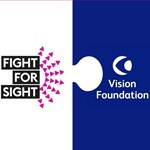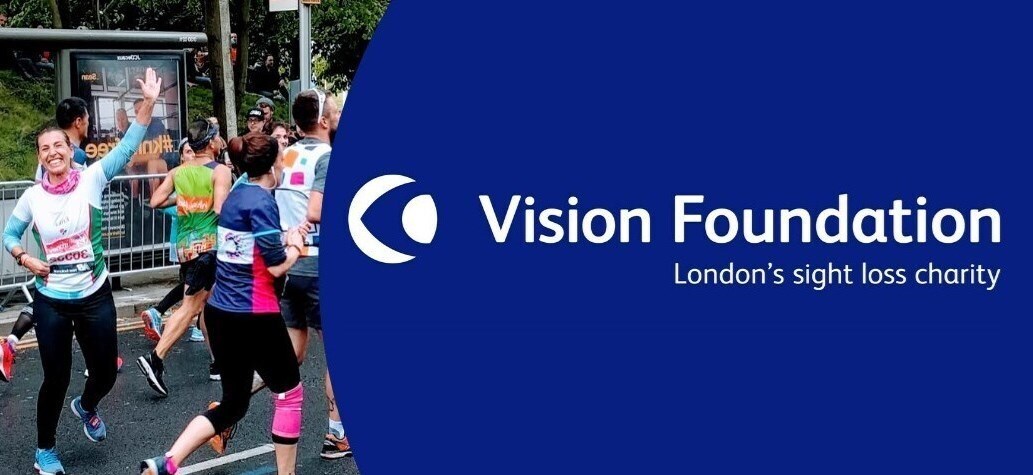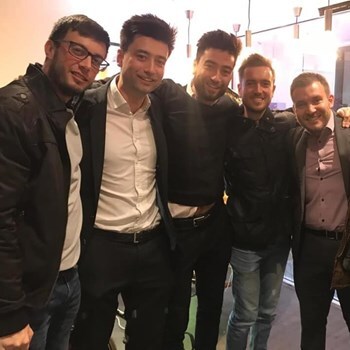Team LHON take on the London Marathon
Team
Team LHON take on the London Marathon!
Team captain:
Michael Smith
About
We are five young London-based friends who were brought together 10 years ago by a rare condition called Lebers Hereditary Optic Neuropathy which is a condition which causes young people to rapidly lose their sight over a matter of weeks. There is no known cure and we were registered blind within 6 weeks of the onset of any symptoms. None of us knew that we had any prospect of developing the condition and the effects have had a profound impact on our lives and the lives of the people around us.
We have faced challenges in acceptance in the workplace and know first-hand how hard it is to get a foot in the door. Many employers don’t understand how much people with sight loss have to offer and how easy it is to include them in the workplace. An exhausting decade on and having gained the skills needed for people with a visual impairment to operate in the working world, having learned how to harness accessible technology, having understood the support we would need and having taught people the 'softer' adjustments required in the higher education establishments and organisations we have been part of, it's unconscionable that so many people are not able to contribute in the way they could to the economic and cultural life of London.
Although this City is not quite representative yet of the society it serves, we've personally witnessed a paradigm shift in understanding, inclusiveness and acceptance over the last ten years driven by a select group of disability confident employers, charities and organisations. Step by step, the five of us want to prove that things can be different by not allowing our sight loss to define us. But we are under no illusion that the path ahead is straightforward and is without challenge. Together with our amazing guide runners - Thea Vukasinovic, Billy Haynes, Max Field, Gregg Williams and Ed Bratton, we will be taking on the 26.2 miles of the London marathon in April 2020 and thank you for visiting our fundraising page and for any donations to our marathon challenge. Without charities such as the Vision Foundation who address the disadvantage by educating employers, advising government and granting funding to other sight loss charities, the five of us would not have recovered from sight loss and be active, equal members of society and have the ability to live life to the full.
Matthew Leverington - 29
Thomas Church – 27
Ian Ketteringham - 31
Daniel Smith – 28
Michael Smith - 28
The Facts
- Sight loss costs London £2.7bn each year, which equates to £300 per Londoner[i]. "Behind every single pound of economic cost there is a human story of isolation, poverty, discrimination and exclusion”
- Many blind and partially sighted Londoners don’t feel like equal citizens in the capital according to recent research carried out by the Vision Foundation. When asked what would have the biggest impact on their quality of life, the majority said better education and awareness about sight loss for members of the public would make the greatest difference.
- Only a third of blind and partially sighted people polled believe that London is open to them in terms of employment. In addition, 80% reported having had some kind of mental health difficulties as a result of their sight loss with almost a third experiencing severe anxiety or depression.
- Of the 52,000 blind and partially sighted people of working age in London, only a quarter are in work – a fall from 33 per cent in employment in 2006. This compares to half of all disabled people in employment and 80 per cent of non-disabled people.
-
Target
£10K
-
Raised so far
£13.9K
-
Number of donors
282
About
We are five young London-based friends who were brought together 10 years ago by a rare condition called Lebers Hereditary Optic Neuropathy which is a condition which causes young people to rapidly lose their sight over a matter of weeks. There is no known cure and we were registered blind within 6 weeks of the onset of any symptoms. None of us knew that we had any prospect of developing the condition and the effects have had a profound impact on our lives and the lives of the people around us.
We have faced challenges in acceptance in the workplace and know first-hand how hard it is to get a foot in the door. Many employers don’t understand how much people with sight loss have to offer and how easy it is to include them in the workplace. An exhausting decade on and having gained the skills needed for people with a visual impairment to operate in the working world, having learned how to harness accessible technology, having understood the support we would need and having taught people the 'softer' adjustments required in the higher education establishments and organisations we have been part of, it's unconscionable that so many people are not able to contribute in the way they could to the economic and cultural life of London.
Although this City is not quite representative yet of the society it serves, we've personally witnessed a paradigm shift in understanding, inclusiveness and acceptance over the last ten years driven by a select group of disability confident employers, charities and organisations. Step by step, the five of us want to prove that things can be different by not allowing our sight loss to define us. But we are under no illusion that the path ahead is straightforward and is without challenge. Together with our amazing guide runners - Thea Vukasinovic, Billy Haynes, Max Field, Gregg Williams and Ed Bratton, we will be taking on the 26.2 miles of the London marathon in April 2020 and thank you for visiting our fundraising page and for any donations to our marathon challenge. Without charities such as the Vision Foundation who address the disadvantage by educating employers, advising government and granting funding to other sight loss charities, the five of us would not have recovered from sight loss and be active, equal members of society and have the ability to live life to the full.
Matthew Leverington - 29
Thomas Church – 27
Ian Ketteringham - 31
Daniel Smith – 28
Michael Smith - 28
The Facts
- Sight loss costs London £2.7bn each year, which equates to £300 per Londoner[i]. "Behind every single pound of economic cost there is a human story of isolation, poverty, discrimination and exclusion”
- Many blind and partially sighted Londoners don’t feel like equal citizens in the capital according to recent research carried out by the Vision Foundation. When asked what would have the biggest impact on their quality of life, the majority said better education and awareness about sight loss for members of the public would make the greatest difference.
- Only a third of blind and partially sighted people polled believe that London is open to them in terms of employment. In addition, 80% reported having had some kind of mental health difficulties as a result of their sight loss with almost a third experiencing severe anxiety or depression.
- Of the 52,000 blind and partially sighted people of working age in London, only a quarter are in work – a fall from 33 per cent in employment in 2006. This compares to half of all disabled people in employment and 80 per cent of non-disabled people.




